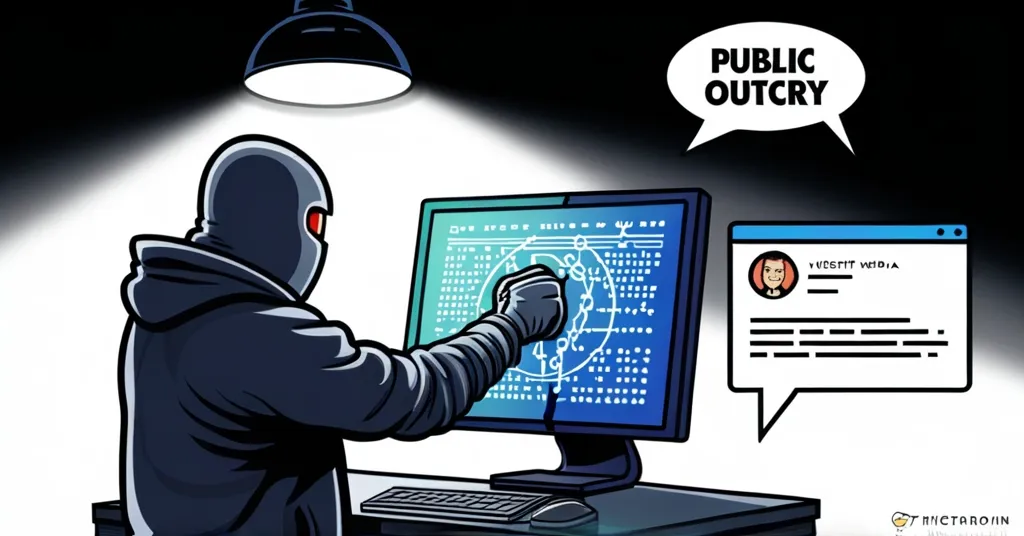Virtuals Protocol Averts Crisis with Jinu’s Help, Bug Bounty Reward Pending

Virtuals Protocol Dodges Disaster Thanks to Security Sleuth Jinu
– **Virtuals Protocol fixes critical smart contract vulnerability**
– **Jinu’s public disclosure on X forces swift action**
– **Bug bounty program relaunched, but reward still pending**
On December 3, 2024, Virtuals Protocol, a blockchain firm focused on AI agents, narrowly escaped a major crisis thanks to the vigilant efforts of a pseudonymous security researcher known as Jinu. A critical vulnerability in one of Virtuals Protocol’s smart contracts—essentially self-executing agreements on the blockchain—could have wreaked havoc on the platform, particularly threatening to derail token launches. This flaw involved issues with how token addresses were created and paired on Uniswap V2, a decentralized exchange platform, allowing an attacker to preemptively create token pairs and halt new token launches.
Jinu, frustrated by the lack of an active bug bounty program from Virtuals Protocol, took to X (formerly Twitter) to express disappointment. “I’m surprised that a project as big and hot as Virtuals doesn’t care about security,” Jinu posted, shining a spotlight on the issue. This public disclosure spurred Virtuals Protocol into action. They quickly fixed the vulnerability, published the new contract details on BaseScan and GitHub, and relaunched their bug bounty program, showcasing their commitment to transparency and security.
“We have verified the vulnerability and applied a patch. Thank you for bringing this to our attention. We apologize for the miscommunication and will review the severity of the issue to determine a bug bounty,” Virtuals Protocol stated, acknowledging Jinu’s efforts.
While Virtuals Protocol’s swift action to rectify the situation is commendable, the reward for Jinu remains undecided. The company is still assessing the impact of the vulnerability internally, leaving the compensation for this crucial security contribution in limbo.
This incident underscores the vital role of security researchers in the blockchain ecosystem. Without active bug bounty programs, the incentive for ethical hacking can diminish, leaving projects vulnerable. Virtuals Protocol’s quick response and decision to relaunch their bug bounty program reflect a positive shift in industry practices, yet the unresolved reward issue highlights ongoing tensions about compensation for security contributions.
The reliance on blockchain technology, especially in cutting-edge areas like AI agent development, necessitates robust security measures. Virtuals Protocol’s experience serves as a stark reminder of the complexities involved in smart contract development and the potential for unforeseen issues. It also demonstrates the power of social media in holding blockchain projects accountable, as Jinu’s public disclosure played a pivotal role in prompting action.
In the world of blockchain, incidents like these highlight the delicate balance between innovation and security. While Virtuals Protocol’s swift action to rectify the situation is commendable, the ongoing debate over bug bounty rewards underscores the need for clear, fair compensation policies to encourage ethical hacking. As the industry continues to evolve, the importance of robust security practices and transparent communication will only grow, ensuring that projects like Virtuals Protocol can thrive in a decentralized future.
The potential consequences of the vulnerability going unaddressed could have been severe, potentially halting token launches and impacting the financial stability of Virtuals Protocol and its users. This underscores the importance of security in blockchain projects, particularly those dealing with sensitive operations like token creation.
The broader implications of bug bounty programs in the crypto space are significant. Projects like Ethereum and Polkadot have seen substantial benefits from active bug bounty programs, encouraging a community of ethical hackers to enhance security. Virtuals Protocol’s decision to relaunch their program could set a positive example for other projects, emphasizing the need for a proactive approach to security.
The role of social media in blockchain security cannot be overstated. Jinu’s decision to publicize the vulnerability on X not only forced Virtuals Protocol to act but also highlighted the power of community involvement in ensuring project accountability. The ethical hacking community plays a crucial role in the crypto space, and recognizing their contributions is essential for fostering a secure and thriving ecosystem.
**Key Questions and Takeaways:**
– **What was the nature of the vulnerability discovered in Virtuals Protocol’s smart contract?**
The vulnerability could block token launches due to issues with how token pairs were created on Uniswap V2, allowing an attacker to preemptively create pairs and halt new token launches.
– **Who discovered and reported the vulnerability?**
The vulnerability was discovered and reported by a pseudonymous security researcher named Jinu.
– **How did Virtuals Protocol initially respond to the reported vulnerability?**
Virtuals Protocol did not respond initially and did not have an active bug bounty program, causing frustration for Jinu.
– **What actions did Virtuals Protocol take after public disclosure of the vulnerability?**
After Jinu’s public disclosure, Virtuals Protocol quickly fixed the vulnerability, relaunched their bug bounty program, and made the fix details public.
– **Is Jinu’s reward for discovering the vulnerability confirmed?**
No, Virtuals Protocol has yet to confirm the reward amount for Jinu, as they are still assessing the impact of the vulnerability internally.



